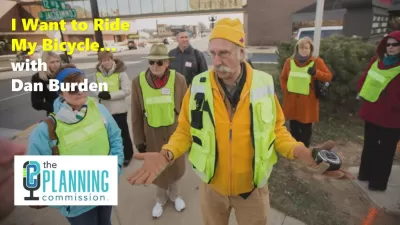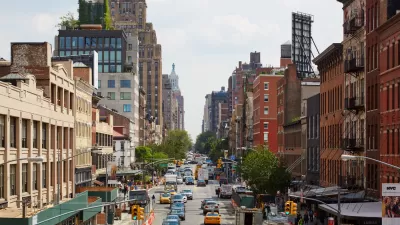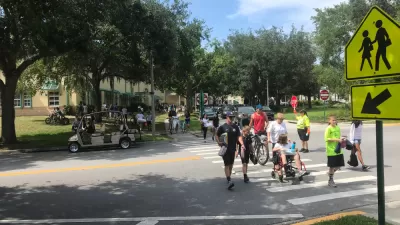J. David Goodman spotlights New York-based Transportation Alternatives, the 40-year-old pedestrian, bicycle, and transit advocacy organization that has become a potent political force.
The arrival of bike share to New York City, whenever the delayed program actually launches, will mark a culmination of sorts for the work of Transportation Alternatives (TA), founded forty years ago by a "ragtag collection of environmental advocates and bicycle riders, dissident city planners and urban preservationists."
Since its public debut in a "traffic-snarling protest ride" down Fifth Avenue in 1973, TA has evolved into a "potent political force" with, "a staff of 23 full-time employees, roughly 8,000 dues-paying members and
an active e-mail network of more than 40,000, not to mention a deep
bench of alumni working in government."
"But when the City of New York has made your agenda its official policy -
including pedestrian plazas and a vast bike-lane network - how
alternative can you continue to be?" asks Goodman.
"Very, [TA Executive Director Paul Steely White] said. 'We see this as the beginning rather than a
culmination,' he said in a May interview. 'Now we have a mainstream
audience.'"
FULL STORY: For Bike Advocates, Delayed Gratification

Maui's Vacation Rental Debate Turns Ugly
Verbal attacks, misinformation campaigns and fistfights plague a high-stakes debate to convert thousands of vacation rentals into long-term housing.

Planetizen Federal Action Tracker
A weekly monitor of how Trump’s orders and actions are impacting planners and planning in America.

In Urban Planning, AI Prompting Could be the New Design Thinking
Creativity has long been key to great urban design. What if we see AI as our new creative partner?

King County Supportive Housing Program Offers Hope for Unhoused Residents
The county is taking a ‘Housing First’ approach that prioritizes getting people into housing, then offering wraparound supportive services.

Researchers Use AI to Get Clearer Picture of US Housing
Analysts are using artificial intelligence to supercharge their research by allowing them to comb through data faster. Though these AI tools can be error prone, they save time and housing researchers are optimistic about the future.

Making Shared Micromobility More Inclusive
Cities and shared mobility system operators can do more to include people with disabilities in planning and operations, per a new report.
Urban Design for Planners 1: Software Tools
This six-course series explores essential urban design concepts using open source software and equips planners with the tools they need to participate fully in the urban design process.
Planning for Universal Design
Learn the tools for implementing Universal Design in planning regulations.
planning NEXT
Appalachian Highlands Housing Partners
Mpact (founded as Rail~Volution)
City of Camden Redevelopment Agency
City of Astoria
City of Portland
City of Laramie





























